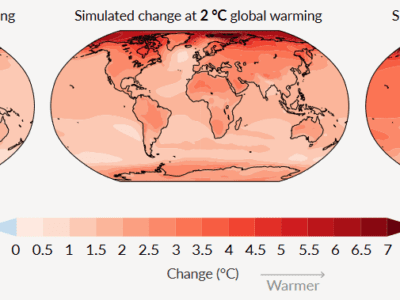Responsibility for Historic Harm
Tort law embodies our society’s view of fairness. What does teach us about climate change?
Is it fair to hold companies responsible for past emissions, even if they didn’t know at the time the emissions were harmful? Shouldn’t it be a defense that they didn’t appreciate the risk at the time?Not if tort law is any guide.
Tort law imposes liability for ongoing harm even though a company did not realize the risk posed by its conduct. The general test under tort law is negligence. This requires that the defendant failed to take reasonable steps to reduce a foreseeable risk of harm. This is often called a “fault-based” standard, but the fault is measured by an objective standard: whether a reasonable person could foresee the harm. This was definitely true by 1990 if not earlier. After all, there was enough concern by then to prompt international negotiations, leading the U.S. as well as other countries to enter a treaty to address the subject.
Indeed, U.S. law goes well beyond this foreseeability standard where toxic waste is involved. Under the Superfund law (CERCLA) and the common law of some states, those who generate or dispose of waste are liable for cleanup regardless of how long ago they disposed of the waste or how careful they were at the time. In fact, the law doesn’t necessarily even require proof that it was a particular defendant’s waste that leaked. By that standard, responsibility for carbon emissions should go back to the start of the Industrial Age.
My purpose here isn’t to prejudge how current litigation against oil companies should come out. There are a lot of legal issues that would have to be sorted out before coming to an opinion. Instead, I’m interested how tort law reflects societal views of fairness. Tort law suggests that it would be fair to hold companies responsible for harm caused by their past emissions, at least from the time that the risk of climate change was clear and at least for emissions they could reasonably have avoided. (If you’re interested, you can find more about this here.) There is actually a growing body of evidence that fossil fuel producers and other major firms were well aware of the risks of climate change by then, but decided to do nothing. Not only was the risk foreseeable, it was actually foreseen.
Even putting aside political problems, there are complex issues involved in implementing this idea, whether that would be done through tort law or some other mechanism: how to allocate responsibility, how far back in time to go, whether the harm should be based on all the company’s emissions or only some, what evidence of causation is required, and how to measure damages.
Tort law may or may not be a good mechanism for compensation; some kind of administrative mechanism might well be better. And of course it’s important to ensure that any efforts at compensation avoid interfering with the effort to reduce future emissions. But tort law at least suggests that some form of compensation is consistent with our society’s general view of responsibility for past conduct.
Reader Comments
4 Replies to “Responsibility for Historic Harm”
Comments are closed.







What good does this do when temperatures, drought, deforestation, wildfires, storms, flooding, worldwide destruction of health and life and other consequences of climate change make the future unlivable for our newest and all future generations!!!?
You really must rethink your priorities to protect the human race as your paramount responsibility.
US Crude Oil Production Hit Record Level in June:
“………Production of crude topped 10.7 million barrels per day with production of natural gas hitting 4 million barrels per day, according to an analysis released by the American Petroleum Institute (API) Thursday.
API praised the major energy milestone as a sign of the country’s “energy renaissance.”
“U.S. oil production has supplied all of the growth in global oil demand so far this year and helped compensate for production losses in some OPEC nations,” the group said. “With continued increases in drilling activity, the U.S. is poised for further production increases in natural gas and oil.”
The analysis also found that petroleum demand with the U.S. is at its strongest since 2007……..’
http://thehill.com/policy/energy-environment/397929-us-had-highest-production-ever-of-crude-oil-in-june
Trump’s EPA rolls back Obama-era coal ash regulations
“The Trump administration announced Wednesday that it is relaxing rules for the disposal of spent coal used to fuel hundreds of power plants nationwide.
But environmental groups say the rollback of coal ash storage regulations established by the Obama administration in 2015 could affect drinking water near dozens of sites.”
…
“The EPA states that the relaxed rules will save affected utility companies $28 to $31 million a year in regulatory costs.”
…
“The EPA extended the time by 18 months that the industry can use unlined coal ash ponds and groundwater-adjacent sites for dumping. The Obama administration sought to phase out those sites by April 2019.
The unlined ponds are considered by environmentalists to be the worst offenders for polluting groundwater that sometimes is tapped for drinking.
‘The Trump administration is turning a blind eye to damage done to our drinking water,’ said Lisa Evans, senior counsel for environmental group Earthjustice. ‘This is aimed at saving industry money instead of protecting the public.’
Testing standards for the amount of lead, cobalt, lithium and molybdenum in adjacent waters were also weakened under the rule change.
Coal ash is often doused with water for quick cooling and dumping, but the sludge is highly toxic and can seep into aquifers. It can include arsenic, lead, mercury and chromium, experts say.”
…
“The roll back marks the first major policy initiative by Wheeler, who has temporarily replaced Scott Pruitt following the later’s July 5 resignation over his lavish spending.
The original, Obama-era coal ash regulations, adopted in 2015, came in response to a massive 2008 coal ash spill in Kingston, Tennessee. A containment dike burst at a Tennessee Valley Authority power plant and released 5.4 million cubic yards of ash. The accident dumped waste into two nearby rivers, destroyed homes and brought national attention to the issue.”
https://www.nbcnews.com/news/us-news/trump-s-epa-rolls-back-obama-era-coal-ash-regulations-n892586
This is what happens when you have a coal lobbyist running the EPA. Although BQRQ warmly embraces such corruption and conflict of interest.
What will you say, BQRQ? Run away from this topic like you did last time? Or is all okay because of the gay menace?
Dan, the more you marginalize We The People, the more out of control climate change destruction gets!!!!